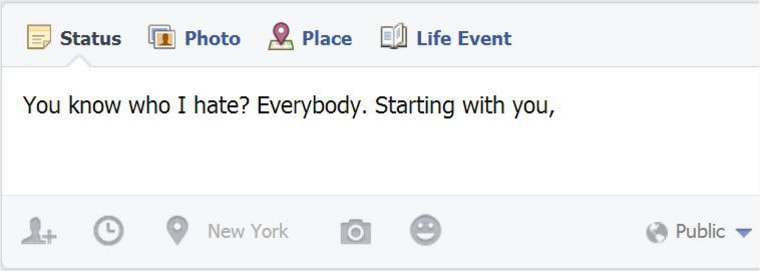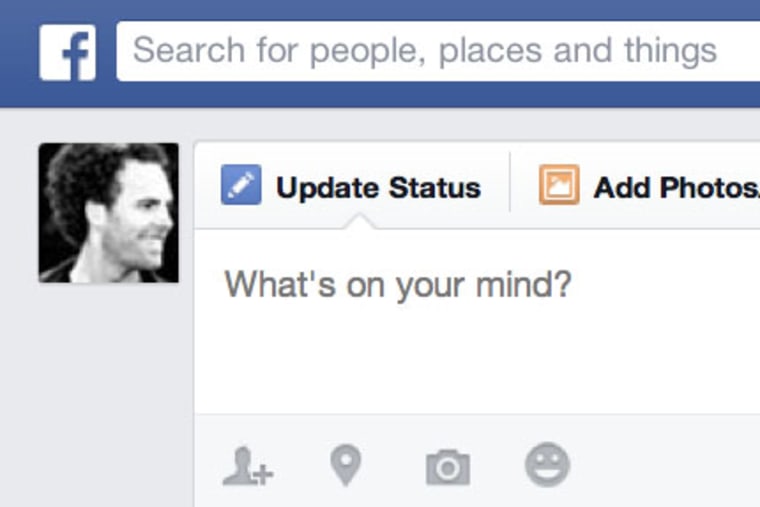
We've all done it before. Blood boiling, we begin writing a tirade against the government or some terrible customer service we received, and then hover our finger over the "Post" button — only to change our minds and delete the whole thing.
It's called self-censorship and according to a new study from Facebook, it happens all of the time. In fact, out of 3.9 million users studied, 71 percent censored their own posts, meaning they typed at least five characters before deciding against posting.
(For those concerned about privacy, the researchers just monitored how many characters were typed and whether the message was ever posted — not the content itself).
Overall, 33 percent of all posts written during the 17-day study were self-censored.
Why were Facebook users so shy about sharing? The study's authors, Sauvik Das from Carnegie Mellon and Facebook data scientist Adam Kramer, came up with five reasons:
- People didn't want to "instigate or continue an argument," because fighting on Facebook isn't fun for anybody.
- Users also didn't want to "offend others," which is why people are always sharing cat videos, not their political manifestos. That, the study said, usually results in users sharing "content for the 'lowest common denominator' — content that would be appropriate for any of the user's distinct social circles."
- People didn't want to "bore" their friends.
- Also, they were hesistant to "post content that they believed might be inconsistent with their self-representations." Yes, we're talking to you, PhD student who secretly wants to post about "Duck Dynasty."
- Users neglected to post "due to technological constraints," for example, getting frustrated when trying to post with the mobile app.
It turns out that young people — often chastised as "over-sharers" — were actually more cautious about what they posted than older users. (The reverse was true, however, when users "commented" on posts that already existed).
Men were also more likely to self-censor than women, especially if they had lots of male friends.
Not that everybody was so self-conscious. People who had tight Facebook communities — meaning lots of their friends were friends with each other — were more free with their status updates, as were people with a politically and age diverse group of friends.
And what about the offensive and boring posts that aren't self-censored? Don't worry, you can always just "Dislike" people when you don't want to see their updates.
Keith Wagstaff writes about technology for NBC News. He previously covered technology for TIME's Techland and wrote about politics as a staff writer at TheWeek.com. You can follow him on Twitter at @kwagstaff and reach him by email at: Keith.Wagstaff@nbcuni.com
